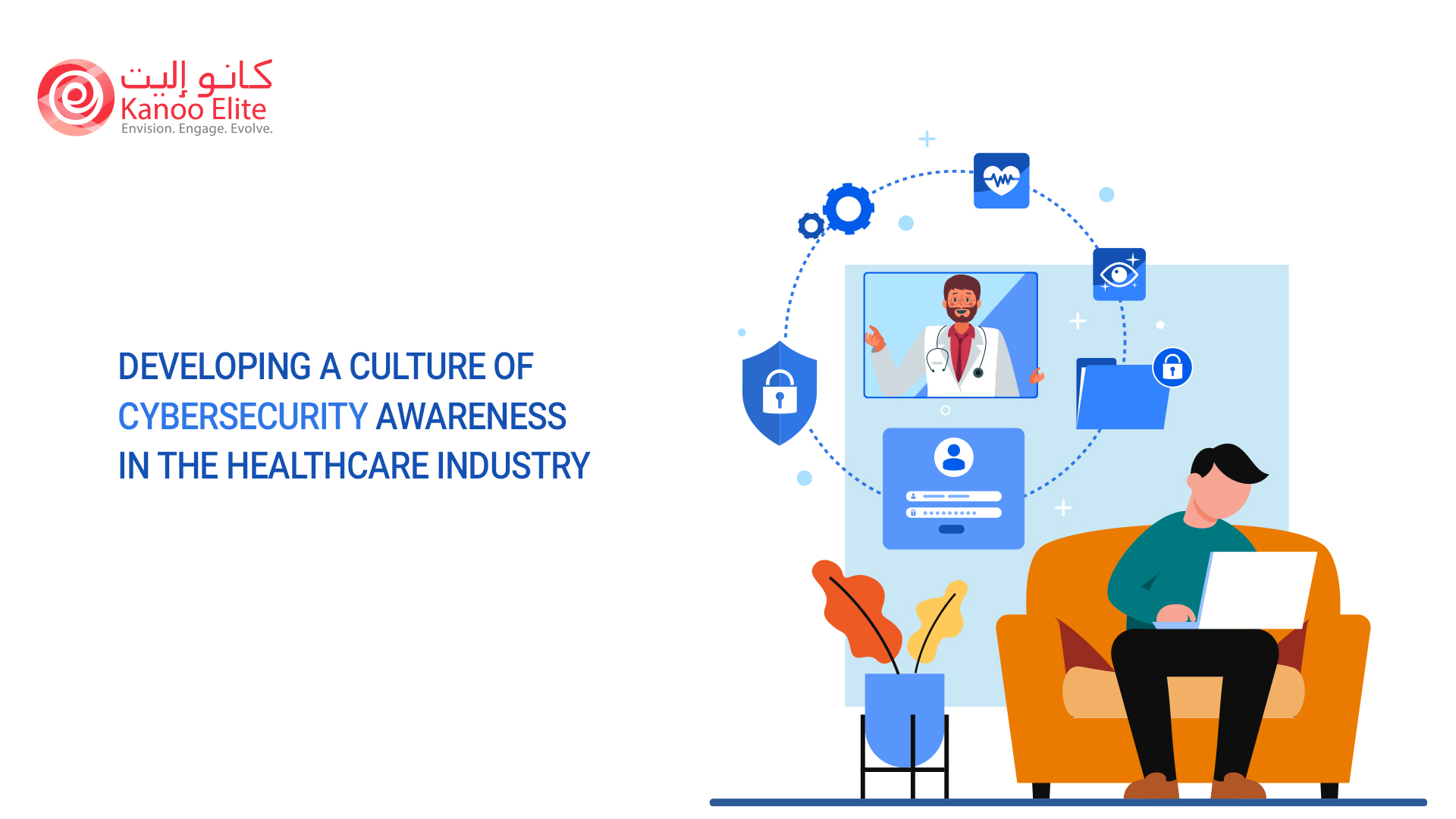In an era where digital transformation is reshaping every industry, the healthcare sector is experiencing a profound change. Electronic Health Records (EHRs), telemedicine, and Internet of Medical Things (IoMT) devices are becoming the norm, enhancing patient care and operational efficiency. However, this digital revolution comes with significant risks, notably cybersecurity threats. The importance of cybersecurity in healthcare cannot be overstated, given the sensitivity of patient data and the potential consequences of a breach. Developing a culture of cybersecurity awareness in healthcare is essential to safeguarding this critical information.
Understanding the Cybersecurity Landscape in Healthcare
Healthcare organizations are prime targets for cybercriminals due to the valuable and sensitive data they possess. The industry has seen a rise in ransomware attacks, phishing schemes, and other forms of cyber threats. The 2020 Cost of a Data Breach Report by IBM and the Ponemon Institute highlights that the average cost of a data breach in healthcare is $7.13 million, the highest among all industries.
Key factors contributing to the heightened risk include:
- Valuable Data: Medical records contain a wealth of information, including personal identification details, medical histories, and financial data, making them lucrative targets.
- Legacy Systems: Many healthcare providers rely on outdated technology that lacks robust security features.
- IoMT Devices: The proliferation of connected medical devices expands the attack surface for cybercriminals.
- Human Error: Employees can inadvertently expose systems to risks through phishing emails or weak passwords.
The Importance of Cybersecurity Awareness
Cybersecurity awareness is the understanding and application of security principles by employees to protect information and systems. In healthcare, a culture of cybersecurity awareness is crucial for several reasons:
- Protecting Patient Data: Ensuring the confidentiality, integrity, and availability of patient information is paramount.
- Compliance with Regulations: Adherence to laws such as HIPAA (Health Insurance Portability and Accountability Act) requires rigorous cybersecurity measures.
- Preventing Financial Loss: Cyber incidents can lead to significant financial repercussions due to fines, remediation costs, and loss of trust.
- Maintaining Operational Continuity: Cyber attacks can disrupt healthcare services, impacting patient care and safety.
Steps to Develop a Culture of Cybersecurity Awareness
Creating a culture of cybersecurity awareness in healthcare involves a multi-faceted approach that integrates policy, education, technology, and continuous improvement. Here are the critical steps to achieve this:
1. Leadership Commitment
A cybersecurity-aware culture starts at the top. Leadership must demonstrate a commitment to cybersecurity by:
- Allocating Resources: Invest in cybersecurity tools, training, and personnel.
- Setting the Tone: Leaders should prioritize cybersecurity in their communications and actions.
- Establishing Policies: Develop and enforce comprehensive cybersecurity policies and procedures.
2. Comprehensive Training Programs
Education is the cornerstone of cybersecurity awareness. Effective training programs should include:
- Regular Training Sessions: Conduct frequent training sessions to keep employees informed about the latest threats and best practices.
- Customized Content: Tailor training materials to different roles within the organization, ensuring relevance.
- Interactive Methods: Use simulations, quizzes, and real-life scenarios to engage employees.
- Phishing Simulations: Conduct regular phishing simulations to test and improve employees’ ability to recognize malicious emails.
3. Clear Communication Channels
Open lines of communication are essential for reporting and addressing cybersecurity issues. Healthcare organizations should:
- Encourage Reporting: Foster an environment where employees feel comfortable reporting suspicious activities without fear of retribution.
- Provide Feedback: Offer constructive feedback and support to employees who report potential threats.
- Share Information: Regularly update staff on new threats, vulnerabilities, and security practices.
4. Implementing Robust Security Measures
While awareness is critical, it must be supported by strong security measures. Healthcare providers should:
- Adopt Advanced Technologies: Utilize technologies such as encryption, multi-factor authentication, and intrusion detection systems.
- Regularly Update Systems: Ensure all software and hardware are up-to-date with the latest security patches.
- Conduct Audits: Perform regular security audits and vulnerability assessments to identify and mitigate risks.
5. Fostering a Security-First Mindset
Employees should view cybersecurity as an integral part of their responsibilities. To cultivate this mindset:
- Integrate Cybersecurity into Daily Routines: Incorporate cybersecurity practices into everyday tasks.
- Reward Good Practices: Recognize and reward employees who demonstrate strong cybersecurity habits.
- Encourage Continuous Learning: Promote ongoing education and awareness through workshops, newsletters, and other resources.
6. Incident Response Planning
Preparation for potential cyber incidents is crucial. An effective incident response plan should include:
- Clear Procedures: Define clear steps for identifying, reporting, and responding to security incidents.
- Designated Roles: Assign specific roles and responsibilities for incident response teams.
- Regular Drills: Conduct regular drills and simulations to ensure readiness.
- Post-Incident Review: Analyze incidents to identify lessons learned and improve future response efforts.
Challenges in Developing Cybersecurity Awareness
Despite the best efforts, developing a culture of cybersecurity awareness in healthcare can be challenging. Common obstacles include:
- Resistance to Change: Employees may resist new protocols or view cybersecurity as an additional burden.
- Resource Constraints: Limited budgets and staffing can hinder the implementation of comprehensive security measures.
- Evolving Threats: The constantly changing threat landscape requires ongoing vigilance and adaptation.
- Balancing Security and Usability: Striking the right balance between robust security measures and user-friendly systems can be difficult.
Case Studies of Successful Implementation
Examining case studies of healthcare organizations that have successfully developed a culture of cybersecurity awareness can provide valuable insights. For example:
Case Study 1: A Major Hospital Network
A major hospital network implemented a comprehensive cybersecurity awareness program that included:
- Leadership Involvement: The CEO and senior executives actively participated in cybersecurity initiatives, demonstrating their commitment.
- Regular Training: Mandatory cybersecurity training sessions were held quarterly, with additional targeted training for high-risk roles.
- Phishing Tests: Frequent phishing simulations helped employees recognize and avoid phishing attempts.
- Incident Response: A well-defined incident response plan ensured quick and effective action during a ransomware attack, minimizing downtime and data loss.
Case Study 2: A Regional Healthcare Provider
A regional healthcare provider focused on building a security-first culture by:
- Embedding Cybersecurity in Daily Operations: Cybersecurity was integrated into daily workflows, with regular reminders and updates.
- Recognition Programs: Employees who demonstrated strong cybersecurity practices were publicly recognized and rewarded.
- Continuous Improvement: Feedback from employees was used to refine training programs and security policies, ensuring they remained relevant and effective.
Conclusion
In the healthcare sector, the stakes are incredibly high when it comes to cybersecurity. The sensitive nature of patient data, coupled with the potential impact on patient care, makes it imperative to develop a culture of cybersecurity awareness. This involves leadership commitment, comprehensive training, clear communication, robust security measures, fostering a security-first mindset, and preparing for incidents. While challenges exist, the benefits of a cybersecurity-aware culture far outweigh the obstacles. By prioritizing cybersecurity, healthcare organizations can protect their patients, comply with regulations, and ensure the continuity of their operations in an increasingly digital world.
Creating a culture of cybersecurity awareness in healthcare is not a one-time effort but an ongoing journey. It requires continuous learning, adaptation, and a collective commitment from all stakeholders to safeguard the invaluable data and systems that underpin modern healthcare.



